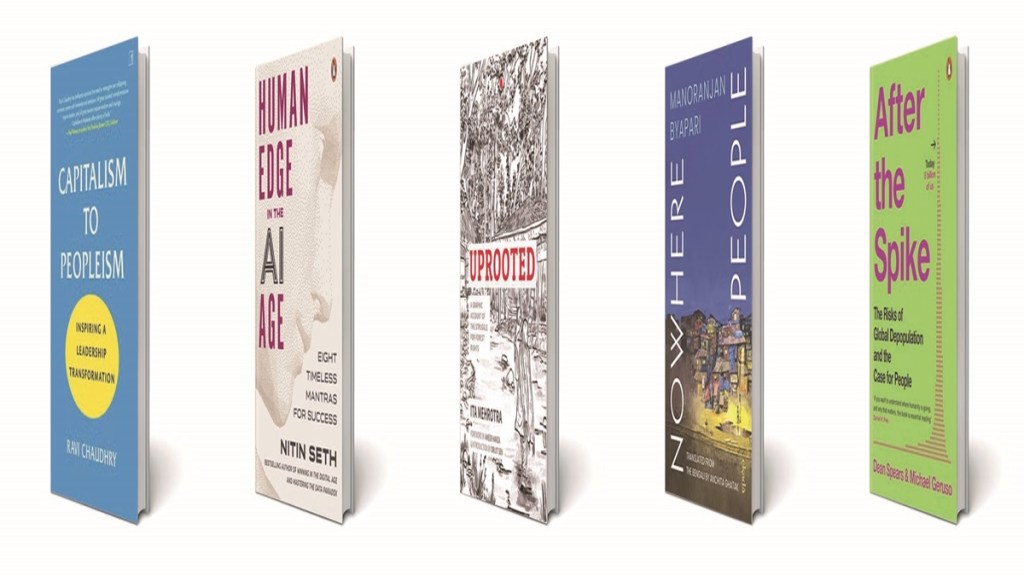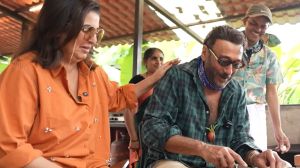Human Edge in the AI Age
Nitin Seth
Penguin Random House
Pp 496, Rs 799
In a world where machines can learn, decide, and simulate emotion—what remains uniquely human? And how do we protect, strengthen, and evolve that edge? In Human Edge in the AI Age, Nitin Seth offers a powerful and deeply personal answer. Drawing on decades of leadership across McKinsey, Fidelity, Flipkart, and Incedo—and rooted in the timeless wisdom of Indian philosophy—he reframes the AI debate through a human lens.
Capitalism to Peopleism
Ravi Chaudhry
Simon & Schuster
Pp 296, Rs 799
Our world faces multiple existential challenges. The ways of doing business and governing nations are now dysfunctional and we are traversing the abyss to extinction. This book identifies a credible path to bypass this disaster. It is anchored on a leadership leap from ‘knowledge’ to ‘wisdom’, driven by political and business leaders manifesting key traits of awareness, bridge-building, and compassion.
After the Spike
Dean Spears & Michael Deruso
Penguin Random House
Pp 336, Rs 999
Most people on Earth today live in a country where birth rates already are too low to stabilise the population—fewer than two children for every two adults. In After the Spike, economists Dean Spears and Michael Geruso sound a wakeup call, explaining why global depopulation is coming, why it matters, and what to do now. It would be easy to think that fewer people would be better—this book invites us all to think again.
Uprooted
Ita Mehrotra
Westland Books
Pp 144, Rs 599
The Van Gujjars and the Taungyas have lived in the forests of Uttarakhand for generations. They have been caretakers of the trees, the land and animals. Uprooted invites us to bear witness to the changing relationship that the Van Gujjars and the Taungyas have with the forests around them—as they live, laugh and struggle in the face of exclusionary conservation, state antagonism and encroachment under the guise of ‘development’.
Nowhere People
Manoranjan Vyapari
Westland Books
Pp 356, Rs 599
Nowhere People chronicles the lives of people living in squatter settlements. They are there and not there. Some have fathers, but no mothers. Some have mothers, but no fathers. And some have neither. And then, some have both, but who are absent from their lives. As if they live only to perish one day. Their only occupation is to somehow stay alive. Some drive rickshaws, some run errands, some collect scrap, some wash glasses at a hooch shop, and some scale fish at the fish market.









